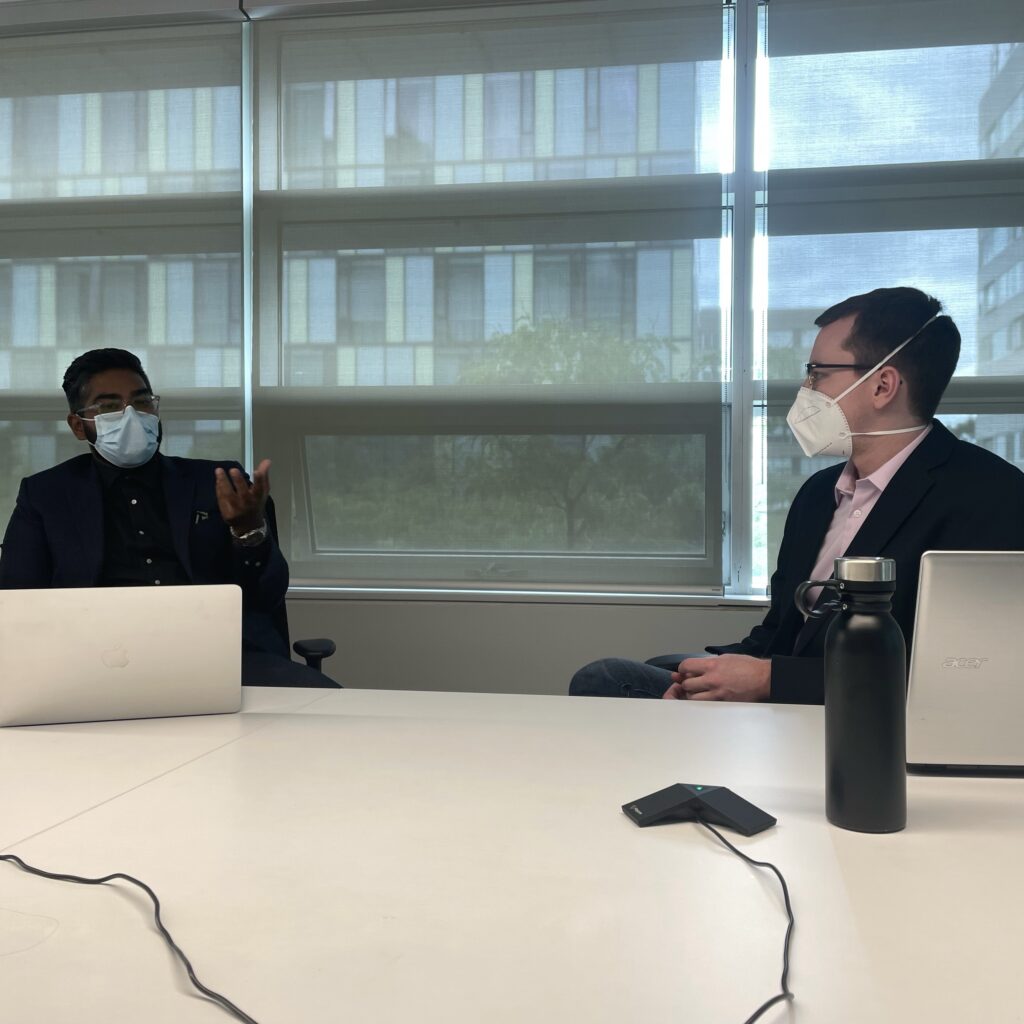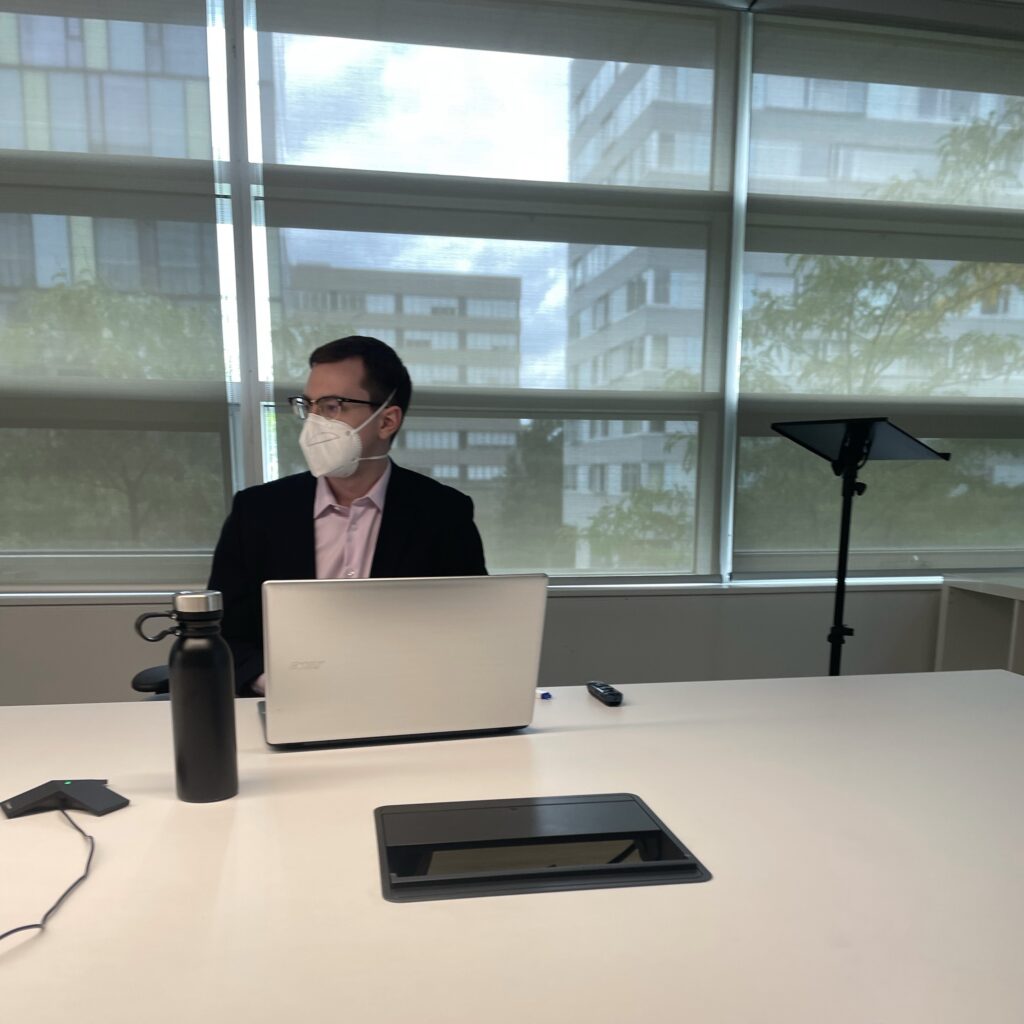Post
Published on July 5, 2023

On September 7, 2022, Dahdaleh graduate student fellow in the Lassonde School of Engineering, Michael De Santi presented his work analyzing the technical aspects of machine learning used in the Safe Water Optimization Tool (SWOT)
The number of people being displaced has been rapidly growing in the last two due to armed conflict and natural disasters. These crises are often exacerbated as those displaced by conflict and disaster are then exposed to outbreaks of communicable disease in refugee and internally displaced person (IDP) settlements, often due to unsanitary conditions contaminating household stored drinking water. This phenomenon of waterborne illness spreading through previously safe drinking water has been identified in Uganda, Malawi, Kenya, Sudan, and South Sudan, among others.
Chlorine removes pathogens and prevents re-contamination. However, over time free residual chlorine (FRC) can lose its effectiveness and protection which can cause disease spread. There are many factors that contribute to chlorine decay, such as water handling, behavioural interaction, water environmental factors. SWOT aims to probabilistically model FRC decay to forecast the likelihood of having enough FRC to improve chlorination guidance in refugee and IDP settlements.
Michael explained that their use of probabilistic modelling captures a more accurate representation of FRC concentration and allows users to make decisions based on risk. This method of modelling prioritizes two behaviours: the ability to predict unsafe occurrences (i.e., FRC levels fall below 0.2 mg/ litre) and effectively reproduce underlying distribution of data. One of the challenges faced on the SWOT is that conventional machine learning training approaches do not meet these priorities for probabilistic models. Michael demonstrated how a novel cost-sensitive learning approach aligns the cost function used to train the models with these desired behaviours. This novel approach outperformed a conventional training approach to improve the forecasting abilities of the SWOT. These improvements to the SWOT can provide better FRC targets, lower the risk of recontamination during storage, and ultimately prevent the spread of waterborne illnesses.
Watch the seminar presentation here:
Connect with Michael De Santi
Themes | Global Health & Humanitarianism, Global Health Foresighting |
Status | Active |
Related Work | |
Updates |
N/A
|
People |
Michael De Santi, Dahdaleh Global Health Graduate Scholar, Lassonde School of Engineering Active
|
You may also be interested in...
Recap – Health Disparities Across Gender and Life Stages in India
On May 8, 2024, Dahdaleh community scholar Dr. Rajnish Ranjan Prasad presented an in-depth analysis of gender health inequities in India and its root causes. He began with an overview of gender health disparities that ...Read more about this Post
Hot off the Press – Digital Technologies and Food Security During Crisis: Covid-19 Experiences from Smallholder Farmers in Odisha, India
Since the COVID-19 pandemic, approximately 150 million people experienced hunger due to food insecurity. Digital agriculture technology determines accurate and specific risks in food production, providing farmers valuable insights to market conditions of a region ...Read more about this Post
New Research Show Mpox Outbreak Lead to Stigma and Blame Toward 2SLGBTQIAP+ Community
Originally published by YFile (30 May 2023) York University researchers have furthered their study of the global mpox virus by publishing a new paper on the dangerous stigmas the 2SLGBTQIAP+ community face as the outbreak continues. Since ...Read more about this Post


